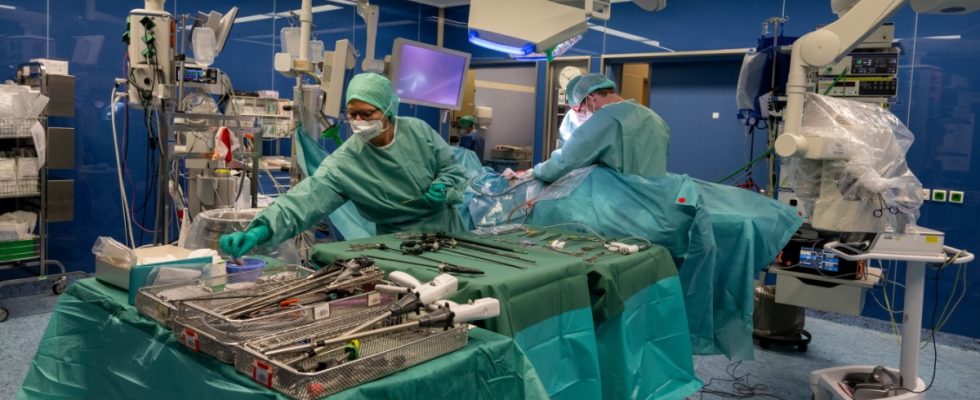The cake will be redistributed – but who gets which piece when and who has to clear their plate empty will only be decided in the coming years. This is how Tim Guderjahn describes the new hospital reform, the first basic features of which the federal and state governments decided on Monday. Guderjahn is commercial director of the Munich Clinic, a municipal hospital company with five locations in the city, including four with the highest level of care.
As a doctor and business economist, he understands the needs of his company in two ways: You have the task of taking care of the patients in Munich, regardless of whether that brings in a lot or not. But you still have to make sure that it pays off. The latter has become increasingly difficult due to the corona pandemic, inflation and the energy crisis. For the current year, the Munich clinic expects a record minus of 90 million euros. But even before the pandemic, the company was in the red, like many other hospitals in Germany.
One of the problems: medicine as a service of general interest is simply not worthwhile in the system of flat rates per case. Guderjahn therefore welcomes the new reform: “It is very important that the structures in the healthcare system finally change. It would be fatal to continue like this.”
From the point of view of the Munich Clinic, one planned change in particular is “very pleasing”: In the future, the case flat rates that hospitals receive per patient and diagnosis are to be abolished. This type of financing is to be replaced by reserve budgets. With these, clinics can compensate for an average of 60 percent of the costs, regardless of the actual number of treatments.
For Guderjahn, this is the right way: “The provision of supply structures is finally being rewarded. Because the fixed costs are always there. Similar to the fire brigade, we reserve space, personnel and technology so that we can take care of our patients at any time. “
In the future, this reform will strengthen the Munich clinic, says Guderjahn
However, Federal Minister of Health Karl Lauterbach (SPD) does not promise any financial injections for the many ailing hospitals. All of the large, public hospitals are now looking forward to tense times, according to Guderjahn: “There will also be fewer hospitals in Munich in the future.” And because some smaller houses in the country will close, the large centers in Munich would get even more patients from the surrounding counties.
However, the clinical landscape will only change slowly, “I think that the first effects will only become apparent in five or more years.” From Guderjahn’s point of view, the decisive factor for the success of the reform is whether the skilled workers go along with these changes and are willing to change location.
The key issues paper for pediatrics, obstetrics, emergency care and the stroke unit, i.e. the stroke ward, special traumatology and intensive care medicine, provides for “additional surcharges”. Guderjahn says he has high hopes: “Finally someone dares to admit that there is still an inequality in the system that needs to be balanced.”
Guderjahn had hoped that hospital remuneration would be even more “linked to the quality of medical results” in the future. But the paper does not provide for that. Instead, uniform quality criteria must be met in order to get the reserve budget. For example, how many doctors with what experience have to be there at all times. Thanks to its size, the Munich clinic will not have any problems here, says Guderjahn. Perspectively, this reform will strengthen the Munich Clinic. How exactly and how quickly does this happen? “I still see a lot of question marks.”

